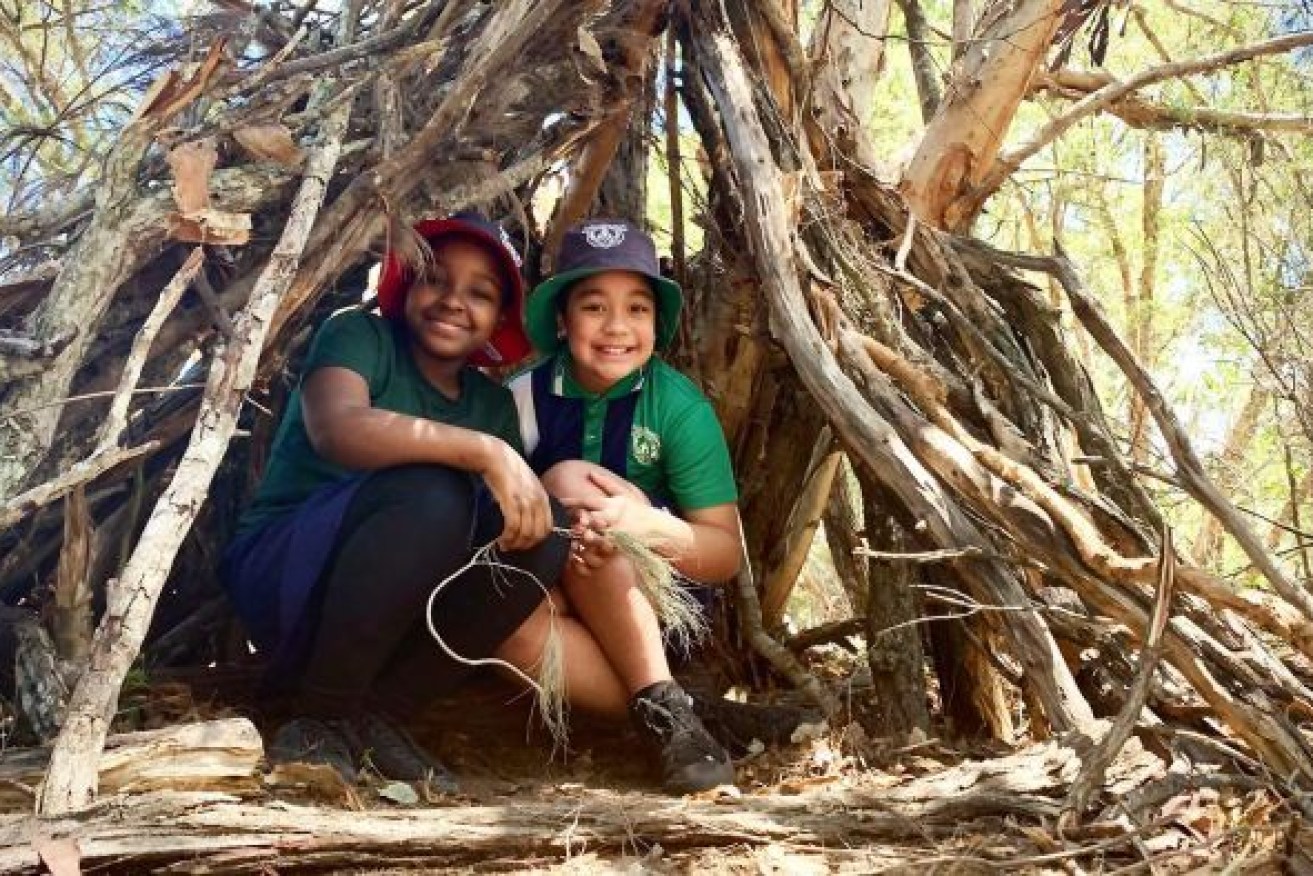The school where thinking outside the box has conquered bad behaviour
A Queensland mum says her son was getting suspended every second week for fighting in school and found it difficult to focus in class — but outdoor lessons at her son’s school dramatically improved his behaviour both at the schoolground and home.

Teachers incorporate things found in nature like rocks, sticks and trees into lessons for music, math and science. Photo: ABC
Every morning was an exhausting struggle for Queensland mother Natalie Ellis to get her 12-year-old son to go to school, where he would regularly get suspended for fighting and violence.
Exasperated and desperate, Ellis was about to pull her son out of the school entirely.
But she said one small change in the past six months had led to “amazing” results for her son, not only at school but also at home.
“He’s a totally different child. He’s happier, more focused and more stable,” Ellis said.
“He hated going to school — now he loves it — it’s amazing. I am very glad we didn’t leave and I’m so proud of him.”
During the coronavirus lockdown, teachers at Berrinba East State School in Logan, south of Brisbane, started thinking about other ways to address growing behavioural problems at the school.
COVID-19 sparks ‘lightbulb’ moment
Berrinba principal Stephen Kanowski said the lockdown allowed teachers to implement an idea many had wanted to try for some time, moving some classes — including music, maths, science, Indigenous studies and English — outside.
“We did have a high suspension rate, so the data was screaming at us to do things differently,” Kanowski said.
“Vulnerable children still came to school during lockdown and that’s where we started this.
“We were told the kids still at school had to go on laptops and do the same thing kids at home were doing, but we knew that wasn’t going to work here and that’s where we developed the outdoor education program.”
Music teacher Anthony Willis said the success has been staggering.
“During those lockdown weeks, I would take students outside and to see how engaged and happy they were made me ask, ‘Why wasn’t I doing this sooner?” he said. “It was like a lightbulb moment for us.
“Before lockdown I would regularly have major behavioural incidents [assaults, swearing and refusal to follow instructions] but since then I don’t think I have had any major incidents.”
This led the school to turn an unused tennis court into a forest area for classes.
Old cricket nets were transformed into a vegetable garden and chicken coop, and a once out-of-bounds paddock was turned into a bike track made and maintained by students.
Ellis said she had seen positive impacts on her son’s mental health since classes moved outside. “He’s so much calmer — even at home he’s started a veggie garden now and he’s excited to tell me what he’s done at school that day — it’s amazing,” Ellis said.
Dramatic fall in suspensions
Kanowski said violent incidents had reduced by 75.5 per cent and suspensions had dropped by 40 per cent since lessons moved outside.
“The impact been huge,” he said.
“For example, we had one Year 3 student who was excluded from another school because he brought a knife to school.
“He was disengaged, but the program led to him being able to interact with other kids and complete lessons.
“We had another student who was suspended six times in term 1 for things like throwing furniture and repeatedly punching other students — he hasn’t been suspended at all since the program started.
“The whole idea of this is to give kids something to talk about, to develop oral language, then all other aspects of education flow on from there.
“It’s also helped engage the unheard group — the kids that do the right thing,” Kanowski said.
“Previously their days would be disrupted by behaviour incidents, but that’s happening a lot less.”
More schools look into outdoor learning
Rebecca Burch from Nature Play Queensland, a not-for-profit organisation that helps teachers incorporate nature into learning, said interest from schools wanting to move lessons outside had doubled since the pandemic began.
“Coronavirus has teachers across the country thinking outside the box about ways to do things differently,” she said.
“Children are being given a decreasing amount of opportunities to be outdoors, whether that is playing freely in nature or learning in nature.
“Research has shown outdoor learning supports holistic development, with more opportunities for teamwork, collaboration and problem-solving.”
Ms Burch said she hoped more schools would experiment with outdoor lessons to mark international Outdoor Classroom Day on November 5.
– ABC / Anna Hartley












